Isopod on reef shark's gill is a fascinating yet disturbing parasite
A reef shark in Belize was observed with what appears to be an isopod, or gill parasite attached to the outer part of its gill flap. It cruised around and seemed unaffected by the parasite, but scuba divers who witnessed the attached pest were horrified, with very good reason.
Isopods are a parasitic creature that attach to bony fish, usually the smaller species such as yellow striped grunts.
The isopod, also known as the tongue-eating louse is the only known organism that actually replaces an organ its host. Using its specially designed front claws, the female isopod attaches to the fish's tongue and severs the blood vessels, causing the tongue to fall off. The isopod then attaches to the stub and replaces the tongue. Some of these creatures feed on blood from the host and others consume fish mucous. The males attach to the gills behind the females.
When two males are present in a host fish, one of the isopods changes into a female. It will then work it's way to the host's mouth and sever the tongue. As expected, this new female will then replace the tongue. Although it does not appear that the presence of an isopod has serious effect on the host fish, they are often found to be underweight when two or more of the isopods are present.
This is the only known case of a parasite functionally replacing the organ in a host fish. It is a fascinating, yet disturbing behaviour. The ocean is full of mysteries that we are only starting to discover. It is a fascinating world that often leaves us in awe and wonder.
-
 0:43
0:43
GalapagosGuys
2 years ago $2.96 earnedMarine lizard is shockingly graceful in the surf of the Galapagos
7.07K7 -
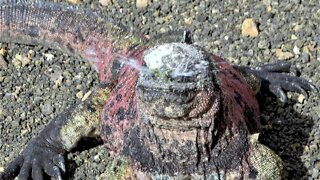 0:35
0:35
WildCreatures
2 years ago $3.76 earnedAmazing adaptation allows marine iguanas to survive on salt water
7.69K30 -
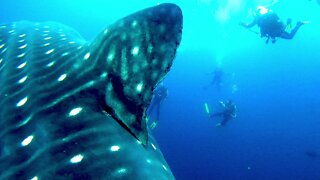 0:55
0:55
GalapagosGuys
2 years ago $3.57 earnedIncredible whale shark encounter in the Galapagos Islands
7.12K20 -
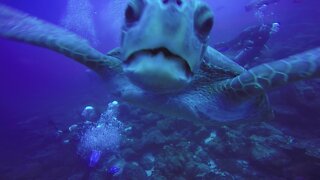 0:34
0:34
GalapagosGuys
2 years ago $11.91 earnedCurious sea turtle swims up to camera to take a bite
13.7K43 -
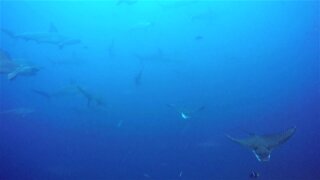 0:36
0:36
GalapagosGuys
2 years ago $3.88 earnedFearless stingrays swim right through hammerhead shark gauntlet
3.95K6 -
 1:47
1:47
Welcome to the World of Power Animals
2 years agoThe Jellyfish Power Animal
7 -
 0:39
0:39
KristysWorld
2 years ago $2.19 earnedScuba diver backpaddles out of whale shark's path
6.07K15 -
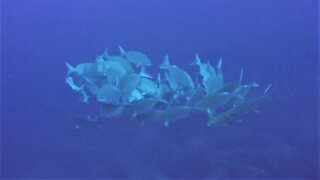 0:32
0:32
KristysWorld
2 years ago $3.23 earnedSwirling fish engage in mesmerizing dance in the Galapagos Islands
5.78K17 -
 1:33
1:33
GalapagosGuys
2 years ago $6.17 earnedIncredible footage of the mysterious shark that science forgot
10.8K15 -
 0:46
0:46
BigSexysPlayground
2 years ago $28.63 earnedHand-feeding a monster-sized fish during feeding frenzy
7.37K20